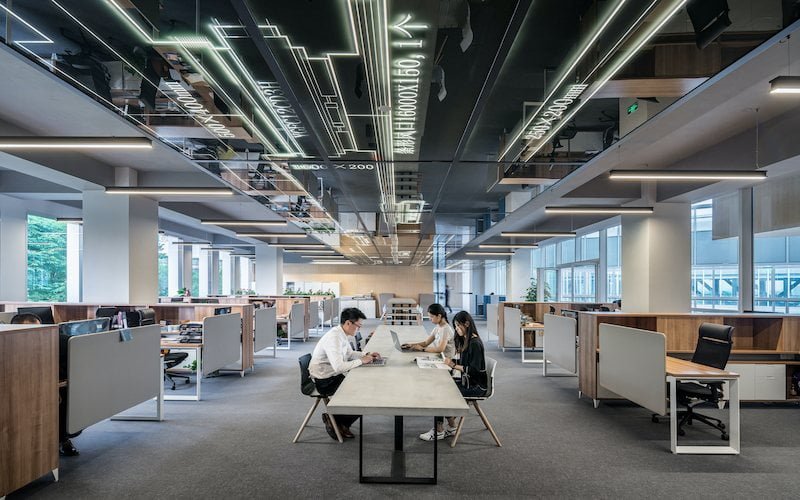Curated by: Sergio A. Martínez
The events at the beginning of 2021 set ablaze a revolution across the corporate world like never before. Companies that were once dormant in their response to messages from employees and people impacted by their decisions woke up with a start, quickly realizing that the rise of Great Resignation had an impact on more than just the individuals that left; it prompted corporate culture to shift within different organizations and led to an evaluation from both leadership and followers alike. Furthermore, it changed people’s ideas about where power truly lies and how one opinion can shape a large organization’s future.
After all, its aftermath has done a remarkable job of putting corporate culture in perspective. Gone are the days when tradition and status were the only things that mattered, and staff felt stifled by top-down approaches to decision-making. Today’s corporations devote much more effort to nurturing an atmosphere of collaboration, inclusion, and meaningful work experiences by leveraging modern communication technology and encouraging personal development. The Great Resignation was a major event that undoubtedly left its mark on the corporate world, particularly in terms of expectations for staff morale and development.
Companies have increased the focus on employee engagement, introducing initiatives like flexible working hours, health benefits, and team-building days to ensure their workforce is both productive and content with their situation. While there’s no denying that working in a big corporation can be challenging, today employees benefit from more attentive management and a much greater appreciation of their efforts.
A new perspective on work

The early 2020s in the software development industry will be remembered as a turning point that, arguably, was sorely needed. Many key engineers and developers decided to abruptly leave their companies, sometimes abandoning projects of enormous complexity, with significant economic repercussions that become the foundation for innovation in the cultural side of things. This undoubtedly caused strife for many businesses that had difficulty adapting to this new normality, shifting new technology and approaches that might change the industry for the better. And despite the initial turmoil, the long-term impact of these resignations may bring more stability than harm. By creating environments with a focus on job satisfaction, we can ensure employees are not simply productive but also happy with their positions.
However, after the shocking impact of the Great Resignation, many companies still have found themselves scrambling to rebuild their corporate culture. Leaders have had to get creative when it comes to rebuilding trust, setting new boundaries, and planning for potential resiliency in the future, with many opting to invest in employee incentive programs that focus on building relationships, regular check-ins to make sure everyone feels heard and supported, and flexible work schedules that prioritize people over productivity.
This can be a daunting task, of course, but it’s also an opportunity to create something innovative and unique. The first step will be evaluating the processes and systems in place that created the need for such a large group of employees to leave, as they could indicate larger systemic problems, so the team should make sure to look at all possible root issues. From there, leadership needs to start discussing ways to incorporate improved communication between management and staff, diversity in hiring practices, feedback loops for employees, and goal alignment across teams into the new culture. And it’s important to bring everyone on board, from executives to frontline staff, to implement these new procedures and standards. Creating buy-in from every level sets companies up for success.
“After such a significant departure, it’s important to focus on fostering positive energy and morale in the remaining company staff. The Scio way of doing things has always included creating a welcoming atmosphere, as well as creating clear company protocols for respectful and open communication between superiors and subordinates”, says Helena Matamoros, of Human Capital at Scio. “A sense of trust needs to be established by keeping everyone informed about any changes that might come, and this is best done via regular meetings and feedback sessions where everyone has a voice. A good company culture knows the value of its people, and it gives them tools to create a dynamic where collaboration is at the front and center.”
Having an open dialogue within the company and getting feedback from everyone on what kind of company culture would best fit the current business needs is a must. This should also include input from members of different levels within the organization — both executives and employees. From there, it is important to set expectations and be transparent when making changes, making sure that all employees understand how their roles fit into the new culture so they feel like their work contributes meaningfully to achieving the organizational goals. In other words, the goal is to create an environment where change is welcomed, not feared, providing a safe space for anyone who may have questions or suggestions as the transition process unfolds. If approached correctly, establishing this new culture can be a positive experience for everyone involved.
What will come next?

Ultimately, the effort should be invested in presenting your business as an inviting environment that encourages career growth and puts it front and center. If the staff feels encouraged to grow, it strengthens both themselves and the organization as a whole, because learning new skills can help people feel empowered and give them confidence when tackling new projects or ideas, contributing to a vibrant atmosphere of goodwill that helps drive innovation and business success.
The impact of the Great Resignation on the software development industry has been immense, and tech companies had to rapidly pivot and restructure to manage the mass exodus of talent. As a result, employers have had to get creative with their hiring strategies to find new developers, often having to look far beyond traditional sources like universities or job postings. This sudden shift in the way people approach jobs has allowed the software industry an opportune moment to reinvent itself and its culture, sure to keep evolving even after things settle down.
After the Great Resignation, companies need to focus on honest communication, respect for individual talent, and a conscious effort to foster diversity, taking an intentional stance toward embracing both creativity and collaboration in workplaces while allowing employees to perform their best work. Forward-thinking companies place a priority on creating an environment where everyone’s ideas are heard, everyone’s skills are valued and everyone feels valued, which leads to a stronger outcome each time. If the tools of technology can help propel business success, then it only makes sense that the cultural products of technology – collaboration, creativity, and diversity – must be at the core of that success as well. Only by doing this will the next step for software industry culture be one moving forward.
The Key Takeaways
- Building a corporate culture that puts people first and foremost is already a complicated (but rewarding) task, as it leads to better outcomes in the development process.
- However, rebuilding a culture after a massive shift (such as the Great Resignation) can be an even greater challenge because it involves getting back lost trust, and the need to leave certain practices behind.
- This process should involve everyone in the company, and leadership should make the effort to keep a better balance between people and business.
- Doing so can lead to a better software industry, with a more people-centric approach, that can only result in better innovations that benefit us all.
